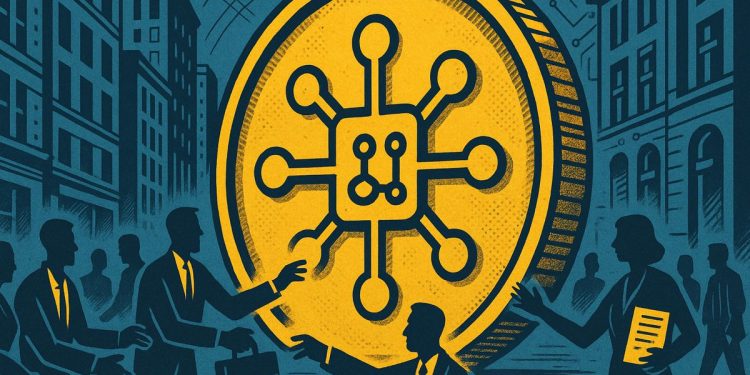In 2025, top AI researchers are being offered record amounts of money, with some getting over $250 million in four years. Big tech companies like Meta, OpenAI, and Google are fighting to hire these rare experts, who can create technology worth billions or even trillions of dollars. The pay is so high that one day’s wage for these researchers beats what famous scientists or astronauts made in a year. This rush for talent is making it harder for startups and universities to keep their best people, and most of the money and jobs are in just a few countries.
Why are elite AI researchers being offered record-breaking compensation in 2025?
Elite AI researchers in 2025 command offers exceeding $250 million over four years due to extreme scarcity of top talent, intense competition among tech giants like Meta, OpenAI, and Google, and the potential for AI breakthroughs to generate trillions in enterprise value. This has triggered a global talent bidding war.
Global AI talent markets have entered uncharted territory in 2025, with individual compensation packages now rivaling the GDP of small nations. The most eye-catching example: Meta recently tabled a $250 million four-year offer to 24-year-old researcher Matt Deitke after he turned down an initial $125 million proposal, according to reporting from WebProNews and Hindustan Times [3][4].
What $250 million really means
- Daily rate: roughly $171,000 per calendar day over four years
- Manhattan Project comparison: J. Robert Oppenheimer’s inflation-adjusted annual salary was ~$191,000 in today’s dollars – now surpassed by a single day’s pay for top AI talent [2][4]
- Space Race comparison: Neil Armstrong’s inflation-adjusted compensation peaked at ~$244,000 per year, a figure eclipsed in 36 hours by current elite AI deals [2][4]
Why companies pay it
| Driver | 2025 Reality Check |
|---|---|
| *Scarcity * | Global headcount of elite multimodal-AI researchers is estimated in the low thousands [3][5] |
| Value potential | A single breakthrough system can unlock hundreds of billions or even trillions in enterprise value [1][2] |
| *Competition * | Meta, OpenAI, Google and Anthropic are locked in a seller’s market, often bidding against each other within days |
Salary bands across the ecosystem (US, 2025)
| Tier | Typical Total Compensation | Notes |
|---|---|---|
| Elite individual contributor | $100–250 million over 3–4 years | Extremely rare, equity-heavy, sometimes with private-jet clauses [3][1] |
| Senior Big-Tech researcher | $500k–$2 million per year | Cash + RSUs, sometimes performance bonuses [5] |
| Mid-level non-elite | $120k–$180k base | Still strong demand, especially for LLM & Python experience [1][5] |
| Early-career startup hire | $95k–$140k base + equity | Equity upside remains, but cash gap vs. Big Tech is widening [1] |
Hidden ripple effects
- Startup burn rates jump sharply when teams try to match even 20% of Big-Tech offers, shortening runway by ~40% according to VC diligence memos [1][5]
- Academic brain drain accelerates: top PhD programs report 35–50% of their best students leaving for industry before graduation [2][5]
- Geographic skew: 100 companies – mostly US and China-based – control 40% of global private AI R&D spend, while 118 countries remain on the sidelines [5]
The numbers signal a fundamental shift in how society values frontier technical expertise. Whether the model is sustainable or merely a speculative peak remains an open question, but for 2025 the bidding war shows no signs of cooling.
Why can a 24-year-old AI researcher command a $250 million package?
The short answer is scarcity meets value. There are only a few thousand people worldwide who can push the frontiers of large-language-model design, multimodal agents or autonomous robotics. Meta’s reported four-year offer to Matt Deitke is the clearest example: after he rejected an initial $125 million proposal, the package doubled to $250 million, with roughly $100 million cash in year one. When a single breakthrough system can unlock hundreds of billions in market value, companies treat these hires like strategic assets, not employees.
How do these numbers compare with historical scientific pay?
In 2025 dollars:
| Project / Person | Peak annual pay | Context |
|---|---|---|
| J. Robert Oppenheimer | ~$191 k | Manhattan Project lead |
| Neil Armstrong | ~$245 k | Apollo 11 commander |
| Elite AI researcher | $62.5 m/year | Meta four-year package |
Even the inflation-adjusted peak pay of the Manhattan Project and Space Race looks modest beside a single AI deal. This is the first time in modern history that private firms – not governments – are outbidding each other at this scale for scientific talent.
Are startups being priced out of the talent market?
Yes, and the data is stark. Mid-level AI engineers at startups earn $120 k–$180 k base salary, while the same skill set at Meta, Google or OpenAI can command $500 k–$2 m total compensation. Burn rates rise and VCs grow wary: according to industry surveys, startup funding rounds now explicitly question “talent retention plans” before signing term sheets. The result is a two-speed market:
- Tier 1: 100+ elite researchers inside Big Tech
- Tier 2: Everyone else fighting for the remaining 90 % of roles
What non-monetary perks are bundled into these deals?
Cash is just the headline. Packages increasingly resemble pro-sports contracts:
- Equity slices comparable to early founders
- Unlimited GPU budgets – thousands of A100/H100s on demand
- Research autonomy – own lab, open publication rights
- Family relocation – private jets, housing stipends, global schooling
- Signing bonuses – $5–$15 m wired within 30 days of acceptance
In effect, companies are buying not only skill but exclusive mind-share during the current model-scaling race.
Could this concentration of wealth and power backfire?
The UN and Brookings both warn of widening inequality. Just 100 firms (largely US- and China-based) account for 40 % of global private AI R&D spend, while 118 countries remain on the sidelines. Academic brain-drain is accelerating – PhD programs report 30–40 % dropouts lured by industry offers. Long-term risks include:
- Reduced innovation diversity if only mega-firms can afford frontier research
- Regulatory capture as technical expertise clusters inside a handful of corporations
- Global exclusion for regions unable to match Silicon Valley compensation
Whether these outsized pay packets are a strategic necessity or a market distortion is now a live policy debate from Brussels to Washington.



















